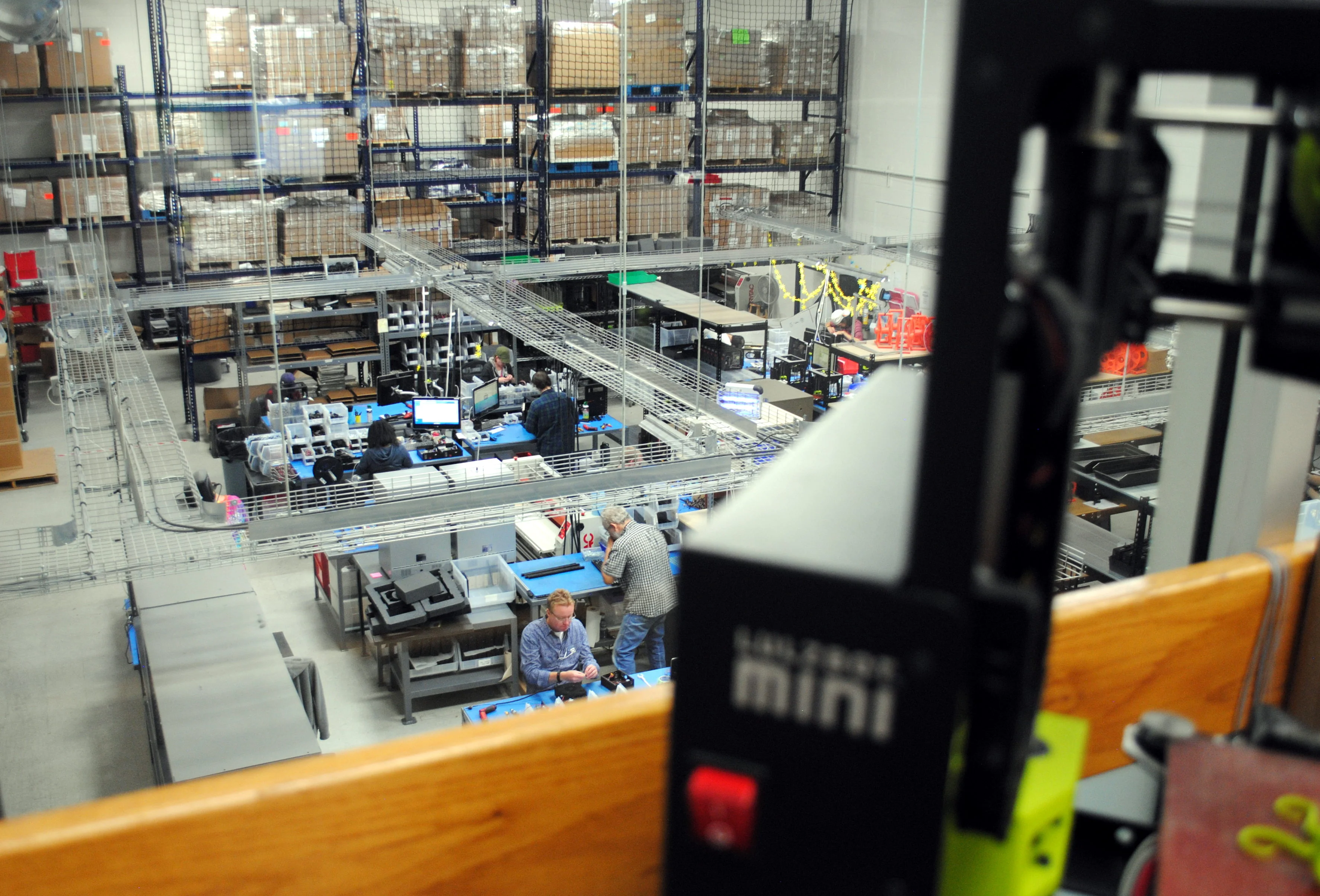The 3D printing industry has grown approximately 400% over the past two years (total industry value).
At Aleph Objects, Inc., our sales of LulzBot® 3D printers, parts, and plastics have increased 809% over the same period. We surpassed our 2014 sales in May and are on track for over $12 million in sales in 2015. So what are we doing to double the growth of a rapidly growing industry?
We are firmly committed to advancing free software, libre innovation, and open source hardware. A LulzBot 3D printer was the first hardware product and only 3D printer to meet the Open Source Hardware Association definition and earn the Free Software Foundation's Respects Your Freedom certification.

Photo by Aleph Objects, LulzBot production line. CC BY-SA 4.0
In our most recent customer survey, we found that over half of our customers rank open source hardware as one of the key reasons they chose a LulzBot. Open source hardware that respects user freedom appeals to different customers in different ways, from educators being able to teach students about the entire tool chain to NASA engineers hacking the machine to 3D print ultra-high-temperature materials exceeding 300°C (572°F). We also believe a free/libre/open approach leads to superior products, which benefits all of our customers and the 3D printing community.
As our founder and President/CEO Jeff Moe puts it, "Aleph Objects' philosophy of Libre Innovation is built into everything we do. We believe you should be free to use, learn from, and improve the hardware and software you use." This philosophy includes not only our company's products, but also our own operations.
It starts with research and development, which is done in close concert with the LulzBot 3D printing community. We maintain publicly accessible directories of our work that are updated every half an hour, with everything protected by free licenses like GNU GPLv3 and CC BY-SA 4.0. You can see our work in progress by visiting devel.lulzbot.com and code.alephobjects.com.
Once a product is ready for release, we develop assembly instructions and finalize the source code. Each of these can be found at OHAI.lulzbot.com and download.lulzbot.com. (If you're wondering, OHAI stands for open hardware assembly instructions.)
Meanwhile, we use a wide range of free software programs to prepare our products for release. The company's workstations and servers run Debian and Fedora, and our R&D work is done using free software like FreeCAD, Blender, Cura LulzBot Edition, and LibreOffice. OpenERP is the hub for the company's finance, accounting, inventory management, customer relationship management, and more. Our main website, LulzBot.com, runs on Drupal.
We generate packaging, documentation, and sales collateral using programs like Inkscape, Scribus, LaTeX, GIMP, and Kdenlive. We promote new releases through a variety of tools like phpList and the LulzBot Forum (forum.lulzbot.com) running phpBB to spread the word, and use analytics tools like Piwik to track our efforts. Beyond respecting user freedom, this end-to-end free/libre/open approach yields products that our customers love.
Many point to the quality of our award-winning and highly reliable printers. We run a cluster of over 150 of our own 3D printers that print parts for new 3D printers 24 hours a day, 5 days a week. They are put through punishing tests and usage, yet still achieve high performance. This type of performance is exactly what our customers expect when they invest in a LulzBot desktop 3D printer.
This environment allows for rapid iteration and improvements, from our LulzBot desktop 3D printers to accessories like tool heads and new 3D printable materials, recent additions include Stainless Steel PLA, Magnetic Iron PLA, Polycarbonate-ABS blends, and electrically conductive PLA.
At Aleph Objects, we appreciate the contributions to free software, libre innovation, and open source hardware made by those who came before us. We are also proud to be an active participant in, and contributor to, the free/libre/open communities, and look forward to a bright future where collaborative technology that respects user freedom is the standard.






1 Comment